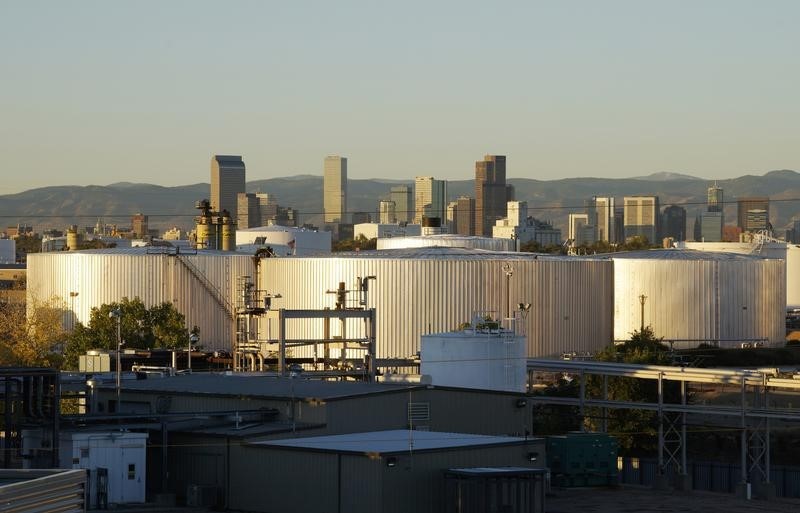Investing.com’s stocks of the week
By Jeff Mason
WASHINGTON (Reuters) - The White House does not feel pressure to loosen restrictions on U.S. oil exports further and views debate over the issue as resolved for now, John Podesta, a top aide to President Barack Obama, told Reuters in an interview.
The drop in oil prices and the Commerce Department's move to allow companies to ship as much as a million barrels per day of ultra-light U.S. crude to the rest of the world has taken pressure off the administration to do more.
"At this stage, I think that what the Commerce Department did in December sort of resolves the debate. We felt comfortable with where they went," Podesta said from his West Wing office in the most substantive comments yet from a White House official on the contentious issue of exporting abundant U.S. shale oil.
"If you look at what's going on in the market and actions that the Department took, I think that ... there's not a lot of pressure to do more."
His comments may disappoint some Republicans and energy companies such as Hess Corp. which have lobbied for more relief from a ban they view as a relic of the 1970s Arab oil embargo. While few analysts expected Obama to make a serious effort to repeal the ban – a delicate political topic due to widespread fears among Americans that doing so could inflate gasoline prices – some had hoped that further modest measures to ease its impact might emerge this year.
By standing pat, however, Obama may avoid clashing with his environmentalist supporters who have begun to campaign against lifting the restrictions, hoping that might keep a lid on domestic oil drilling by depressing local prices. Some refiners such as PBF Energy, which have benefited from the abundance of U.S. shale oil, also oppose easing the ban.
Podesta, who plans to leave the administration in early February and help former Secretary of State Hillary Clinton if she decides to run for president, has played a critical role on energy and climate policy during his one-year tenure with Obama.
He said the White House would unveil additional measures on climate change, including steps to reduce methane emissions, before Obama's State of the Union address on January 20. The speech will include a section on fighting global warming, an increasingly important part of Obama's second-term agenda.
His remarks on oil exports provide insight into the administration's thinking on an issue that has unsettled oil markets and international allies alike.
Obama had faced calls from counterparts in Europe and elsewhere to reverse a 40-year-old ban on exports of most domestic crude and allow some of the booming U.S. shale oil production to be sold overseas.
Bowing to that, the Commerce Department said in December it had granted permission to some companies to sell lightly treated condensate, a form of ultra-light crude, abroad.
But that move came in the midst of a collapse in oil prices, which had started to reduce pressure on Obama to loosen export restrictions. Prices have plunged to less than $50 a barrel and U.S. drillers are more concerned over generating cash flow and trimming spending plans than seeking new markets abroad.
With the rapid rise in U.S. oil output now expected to slow or even stop by the end of this year, fears that domestic supply would quickly overtake local refiners' demand have largely subsided, at least for the moment.
Podesta declined to comment on whether low oil prices and changing market conditions affected the administration's thinking on the size of the U.S. Strategic Petroleum Reserve.
The Department of Energy, he said, was studying how best to manage the reserve and evaluating its size and structure. "They're doing an analysis on that," he said.
Podesta said it was too early to tell whether lower gasoline prices would set back some of the administration's other climate measures. The retail market could change as consumers take a second look at less fuel efficient vehicles that were less appealing when oil was more expensive.
